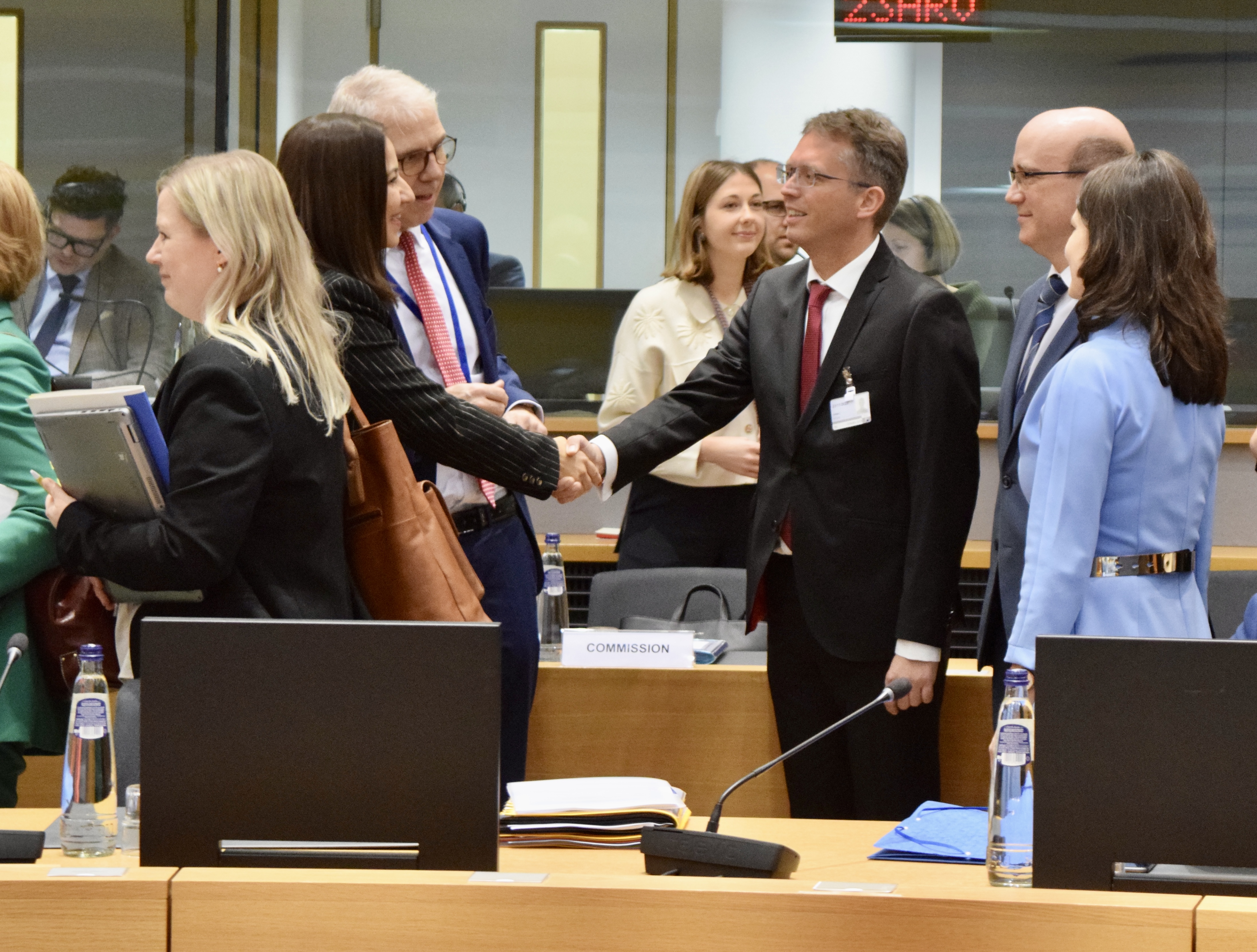On Thursday morning, the Board of Trustees of the Tempus Public Foundation adopted the principles and concept of a new internationalisation program jointly developed by the Ministry of Culture and Innovation, the Tempus Public Foundation, and leading Hungarian universities, the University of Pannonia, University of Debrecen, Széchenyi István University, Óbuda University and Semmelweis University, Balázs Hankó, State Secretary for Innovation and Higher Education at the Ministry of Culture and Innovation said to MTI in Brussels on Thursday.

The State Secretary, who arrived in the Belgian capital to attend a meeting of EU education ministers, said that the program, which will be launched next year, has a budget of HUF 10 billion and will provide the opportunity to participate in the exchange program to around 8,000 students, teachers and researchers. The program will first be available for universities managed by the model-changing public interest trusts. The Tempus Public Foundation will launch the call for applications to universities on 15 January 2024, so students can apply to their universities as early as next March so that they can participate in the exchange from the autumn.
As Balázs Hankó said, it will be possible to study not only in Europe but also in universities outside Europe, like in Asia or North America, based on international agreements concluded by the universities. In addition, there will be the possibility of scholarships for excellence, which will provide scholarships for more than 200 students to study at the best universities in the world.
He added that the new program would fully recognise university credits completed at foreign universities, meaning that studying abroad will no longer delay university studies, and the scholarship will range from HUF 350-500,000 per month. The program will focus on fields of study relevant to the Hungarian economy or society.
The State Secretary also stressed that he hopes the new program will help achieve the government's goal of having at least one Hungarian university among the world's top 100 universities by 2030, three Hungarian universities among the top 100 European universities, and doubling the number of students participating in international exchange programs to 20,000 per year.
On the Erasmus case, Balázs Hankó said that the government sent its latest proposal to the European Commission almost two weeks ago, but as usual, the response did not arrive on time.
"The commission should know that in the Erasmus cooperation rules they have laid down, Hungarian universities had to apply by 23 February, and they have nine months to conclude contracts based on these rules, so the deadline is today, but of course, the commission can decide to extend it.”
We are in the process of negotiation, and we hope that the commission will accept the proposals we have made precisely in response to their comments to ensure that EU funds are adequately protected and not follow the tactic of always asking for more and more aspects, which has only served to delay the commission’s work.
He also added that the new exchange program is "better and more than Erasmus," as it incorporates the criteria of Hungarian universities and Hungarian students. "Bilateral agreements will be strengthened with universities that are the most important for Hungarian universities and Hungarian students. It also prioritises areas of training and research that serve the interests of the Hungarian economy and the Hungarian people," he added.
The State Secretary also said Hungarian higher education had achieved a successful competitiveness turnaround in recent years. "This is also shown by the results: four years ago, 7, two years ago 9, last year 11, and this year, 12 universities are in the top 5 percent of the world, and this year was the most successful admission year of the last decade, as more than 33 percent more students enrolled in Hungarian higher education than last year," he said.
According to Balázs Hankó, it is also essential for Hungary to involve as many women as possible in technical, scientific, and IT education and research. "One in four students in these fields in Hungary are women, but we want to double this proportion by 2030. We have therefore launched several initiatives, such as the Tech Girls program, to make these professions more attractive to women," said the State Secretary.
Source: MTI-Hungarian News Agency

